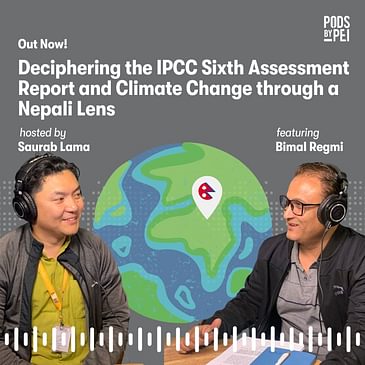#Ep.037
Adopted in 2015, the Paris Agreement was hailed as a leap for humankind to achieve climate change mitigation, adaptation, and establish effective mechanisms for climate finance. The agreement set the long-term temperature goal to keep the rise in mean global temperature to well below 2 °C (3.6 °F) above pre-industrial levels, and preferably limit the increase to 1.5 °C (2.7 °F), recognizing that this would substantially reduce the effects of climate change.
Building on this, the final synthesis report of the IPCC Sixth Assessment Report, published recently in March 2023, unequivocally states that climate change has been caused by greenhouse gases emitted through anthropogenic activities. Climate change has created substantial damages and increasingly so, irreversible changes to the planet. The recently published report is unequivocal about climate change arising from anthropogenic carbon emissions, and that it is indeed high time that the world starts to cut down its emissions, reduce the dependency on fossil fuels, and adopt carbon-neutral technologies for energy generation, industry, and transport.
PEI’s Saurab and Bimal discuss the recently published synthesis report of the IPCC Sixth Assessment Report, some of the key takeaways from the report and climate change through a Nepali lens.
Bimal is a climate resilience and natural resource management expert with more than 23 years of experience supporting national and local climate change adaptation priorities in Nepal. He has experience supporting the Government of Nepal (GON) in risk reduction, natural systems sustainability, and biodiversity conservation, and has made significant contributions to the development of Nepal’s Climate Change Policy and institutional reform. He holds a PhD in Climate Change from Flinders University, Australia.
Click here to support us on Patreon!!




